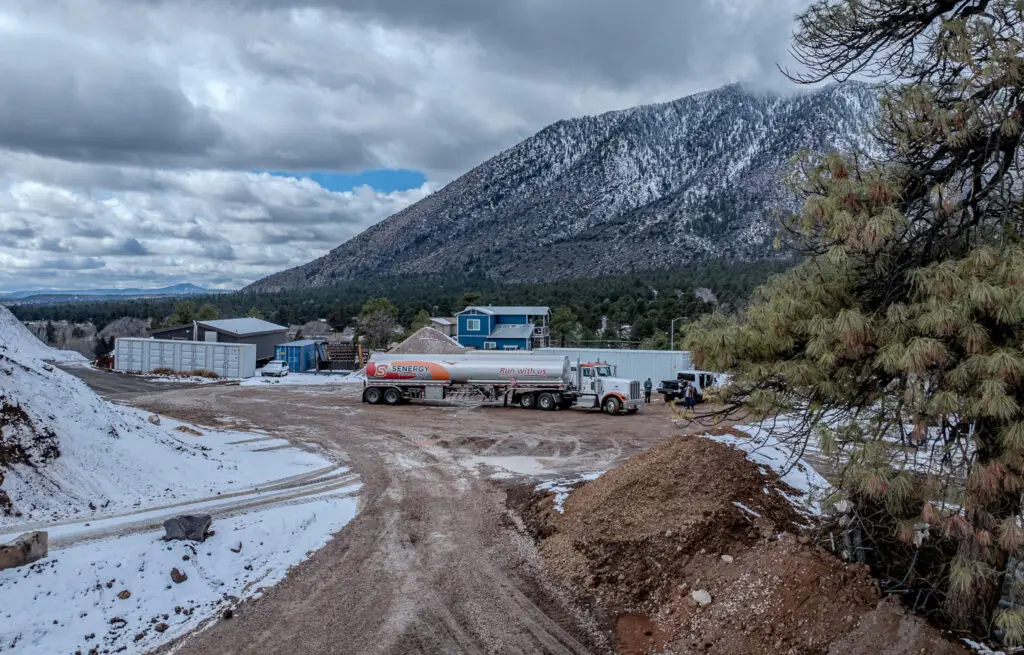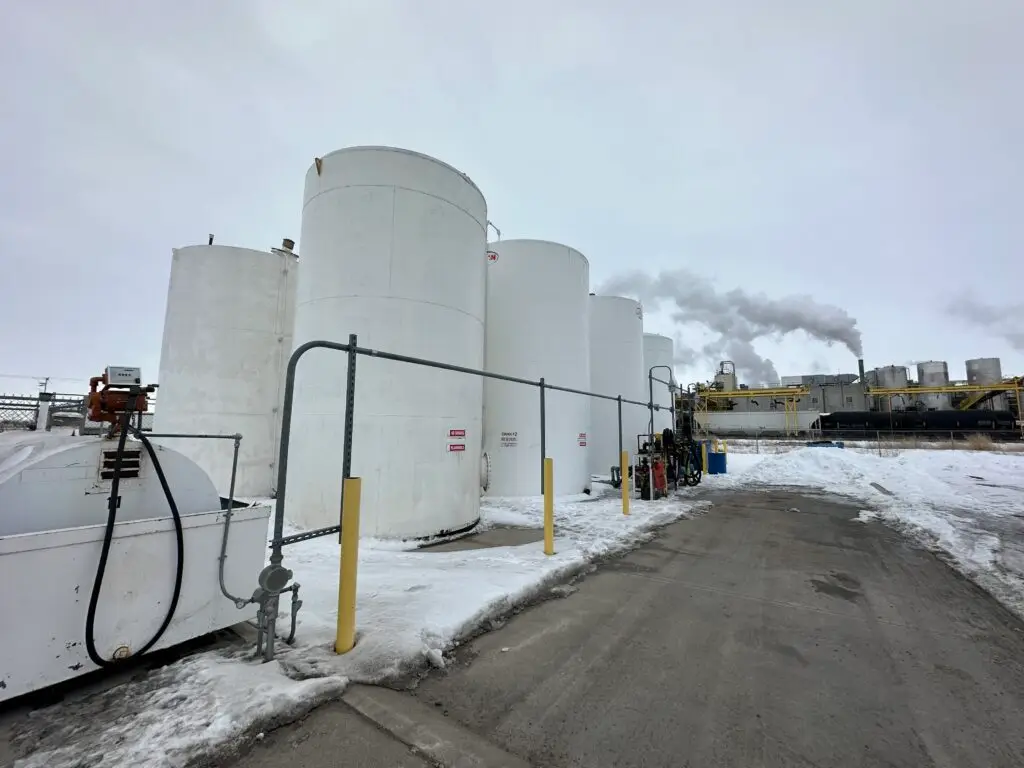Winter can be tough on all of us, but it’s even harder on your diesel engines. Whether you’re managing a fleet of vehicles, running a construction site, or operating an auto shop, cold weather can throw a wrench in your operations if your fuel isn’t ready for the season.
Diesel doesn’t perform well in low temperatures unless you take some proactive steps. That’s where winter diesel additives come in. If you’ve ever experienced a truck that just won’t start on a freezing morning or had a job site grind to a halt because fuel gelled overnight, you know exactly what we’re talking about. Let’s dig into our guide for commercial buyers on why winter additives in diesel fuel are so important.
While the Southwest and Rockies may not experience the same brutal winters as the upper Midwest, don’t let that fool you—temperatures in this region can still dip low enough to wreak havoc on diesel fuel. High elevations, sudden cold snaps, and nighttime temperature drops create the perfect storm for diesel fuel to gel.


Diesel fuel contains paraffin wax, which begins to crystallize when temperatures drop. This crystallization thickens the fuel and can clog fuel lines, filters, and injectors—leading to what’s known as “gelling.” If you’ve ever tried to squeeze honey that’s been sitting in a fridge, you get the idea of how difficult it is to move gelled diesel through a fuel system.
For commercial buyers, the consequences of untreated diesel are serious: stalled equipment, missed deadlines, costly repairs, and a whole lot of frustration.
The good news is that diesel additives can save you from these headaches. But not all additives are the same, and it’s important to choose the right one for your specific needs. Here’s a breakdown of the key types of winter diesel additives that you should consider:
These are your first line of defense against gelling. Anti-gel additives work by lowering the temperature at which paraffin wax crystals form, keeping your fuel flowing smoothly in freezing conditions.
One of my customers, who manages a fleet of delivery trucks in Utah, swears by anti-gel additives. After a particularly bad winter a few years back, he started treating all his trucks in early November, and he hasn’t had a gelling problem since.
For those of you working in extreme cold, especially at high elevations or northern regions, cold flow improvers might be a better fit. These additives take anti-gel protection to the next level, ensuring that your diesel continues to flow even in sub-zero temperatures.
If you’re running construction equipment or heavy machinery at a high-altitude job site, cold flow improvers can keep you up and running when the temperatures plummet. They’re especially useful if you know your equipment is going to sit idle overnight in freezing conditions.
Cetane improvers are additives that enhance fuel ignition, which is particularly important in cold weather when engines can struggle to start. By improving combustion, cetane boosters reduce engine stress and make cold starts easier.
For example, a vehicle fleet manager we worked with in Wyoming was having constant issues with cold starts during winter. Once he started using cetane improvers, his trucks were up and running much quicker each morning, reducing engine wear and tear in the long run.
Condensation can form in fuel tanks during temperature swings, which leads to water in your diesel fuel. In winter, this water can freeze and cause blockages in your fuel lines. Water dispersants prevent this by breaking down the water into smaller particles that are easier for your system to handle.
If you’ve got fuel sitting for extended periods—like in backup generators or farm equipment—water dispersants are a must.

Not all diesel engines are created equal, and different equipment has different requirements when it comes to winter fuel protection. Your needs will depend on what you’re running: delivery trucks, construction equipment, or service vehicles all have different operating conditions.
For instance, if you’re managing a fleet of trucks that make daily runs, a standard anti-gel additive might be sufficient. But if you’ve got heavy machinery sitting idle on a cold construction site overnight, you’ll want something stronger, like a cold flow improver.
When choosing additives, consider:
The best time to add winter diesel additives in your commercial fuel is before the cold sets in. Once the fuel has gelled, it’s much harder to resolve the problem, so get ahead of the game.
How much additive you need depends on the volume of fuel. Most products will give you guidance on how many ounces per gallon to use. Be mindful of over-treating—it won’t necessarily improve performance and can be wasteful.
By preventing gelling and maintaining proper fuel flow, winter additives can help your engines run more efficiently, even in cold weather. This means you’ll get better mileage and more power from each gallon, saving you money on fuel costs.
Additives not only help with fuel flow but also reduce the strain on your engines. Cold starts and clogged fuel lines put extra stress on your vehicles and machinery, leading to more frequent repairs. Additives can prevent these problems, prolonging the life of your equipment and reducing downtime.
Let’s face it: additives are an investment. But in the long run, they pay for themselves by preventing expensive breakdowns, improving fuel efficiency, and keeping your operations running smoothly during the winter months.

Do I Need Additives in the Southwest?
Even though winters in the Southwest can be milder, temperature swings between day and night can still cause fuel to gel. If you’re working at high elevations or experiencing overnight freezes, additives can provide peace of mind.
Can I Use the Same Additive for All My Equipment?
It’s best to match the additive to the type of equipment you’re running. Fleets, heavy machinery, and backup generators may all have different needs when it comes to winter fuel protection.
How Often Should I Add Winter Additives?
You should add additives to your fuel regularly throughout the winter months, especially if you’re topping off your tanks or filling new fuel.
Winter diesel additives for commercial fuels are your best defense against the cold, helping prevent costly downtime, protecting your equipment, and saving you money. If you’re not sure which additive is right for your operation, feel free to reach out. We’re here to help you find the right solution to keep your fleet or equipment running smoothly, no matter how cold it gets.
Stay ahead of winter, and let’s make sure you’re ready for whatever weather gets thrown at you.

